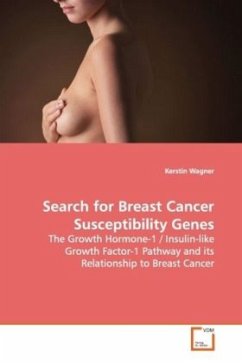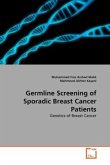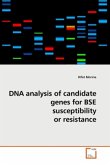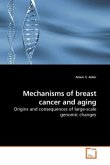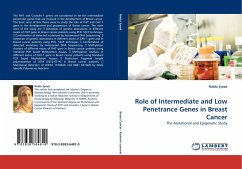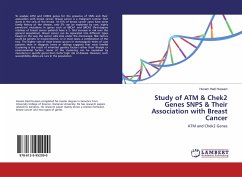Breast Cancer is the most common cancer in Western
women and represents 28% of female cancer deaths.
During the last decades, research has revealed cancer
as a complex heterogeneous disease triggered by
dynamic changes in the genome.
The work in this dissertation summarizes the
investigation of polymorphisms in the GH1/IGF-1 axis
in relation to breast cancer risk by means of the
planning and conducting of case-control studies. Many
findings were novel and they reflected the complexity
of the gene regulation along the GH1/IGF-1 pathway.
In summary, the studied polymorphisms were mainly
associated with a decreased breast cancer risk. This
lead to the suggestion that genetic variants in the
GH1/ IGF-1 axis do not increase the mitogenic and
antiproliferative features of the pathway, but rather
protect the cells from proliferation. The study
contributes to the world-wide effort of
identification of low-penetrance genetic variants,
which may be useful tools for prevention, prognosis
and planning of individual therapy.
women and represents 28% of female cancer deaths.
During the last decades, research has revealed cancer
as a complex heterogeneous disease triggered by
dynamic changes in the genome.
The work in this dissertation summarizes the
investigation of polymorphisms in the GH1/IGF-1 axis
in relation to breast cancer risk by means of the
planning and conducting of case-control studies. Many
findings were novel and they reflected the complexity
of the gene regulation along the GH1/IGF-1 pathway.
In summary, the studied polymorphisms were mainly
associated with a decreased breast cancer risk. This
lead to the suggestion that genetic variants in the
GH1/ IGF-1 axis do not increase the mitogenic and
antiproliferative features of the pathway, but rather
protect the cells from proliferation. The study
contributes to the world-wide effort of
identification of low-penetrance genetic variants,
which may be useful tools for prevention, prognosis
and planning of individual therapy.

